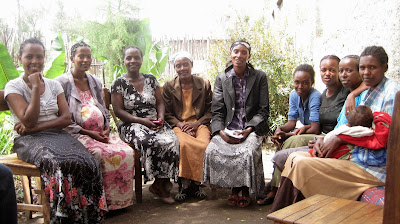Well, I have to start by apologizing
for my recent hiatus from blogging...I don't really have much of an excuse!
As much as I love most forms of communication, spoken and written, I have
discovered that blogging is not my most natural form of expression.
However, I'm a work in progress and want to use this blog to keep you
updated on my life and what WiLi is up to. So, I'm back :)
To give you an update. I
returned from my most recent 6 week trip to Ethiopia about a month ago in the
beginning of November. My trip went very well! I am continuing to
build relationships with our Ethiopian partners, and in that discovering the delights
and the challenges of working cross-culturally in the Ethiopian context. I
consider myself to be fairly culturally sensitive and aware, however it has
been a challenge to learn how best to communicate and work in a culture that
has different values from what I am used to.
Frustrations have certainly come, but overall it has been a growing
experience to learn about Ethiopian values, and my own, and realize that there’s
nothing wrong when they differ!
While I was in Ethiopia I got to
spend a good bit of time out in the communities that we work in with different
Sustainable Living Groups. It was
wonderful to have the time to meet with different groups and sit down with
women and hear their stories! In the
future I want to share more of the individual stories, but for now here are
some pictures of the different groups and women that I met with!
 |
| Sustainable Living Group preparing a coffee ceremony |
 |
| Members of a Sustainable Living Group weaving together |
.JPG) |
| Dadi, a Sustainable Living Group member that I had the joy to talk with |
Since returning from Ethiopia in
November I have been busy working on internal WiLi projects, continuing to
fundraise, and preparing to move to Ethiopia next month. That’s right, I’m moving to Ethiopia in
mid-January!!! The paper work is moving
along and it seems clear to us that God has opened this door, so I will be
moving to Ethiopia for the next year to be the new Ethiopia Country Director
for WiLi. I am THRILLED about this
opportunity and so thankful that God has blessed me with this opportunity. This comes at the perfect time for me
personally, and for WiLi, with the transition we have been in. As Country Director I will be doing a lot of
what I have been doing the past six months, but more intensely and consistently
now that I will be in Ethiopia full time.
I will be managing our ongoing well drilling and sanitation projects,
will be responsible for communication and relationship building with the
Ethiopian church and our other in-country partners, implementing the SLG
sponsorship program and other new initiatives on the ground, and serving as the
bridge between WiLi’s field operations in Ethiopia and our head office in
Orlando.
As I mentioned above, I am
continuing to fundraise with the goal of raising support to cover half of my
expenses for the coming year. If you
would be interested in financially supporting me, please check out my
fundraising page here. Any support you could give would truly be a blessing to me and to WiLi! If you have any questions about WiLi's funding or the way funds are used please let me know.
I’ll be blogging again soon to keep
you updated on my move and what WiLi is up to!
I hope you all have a Merry Christmas with family and truly get to
reflect on what an unequaled blessing it is for us that Jesus came to
earth. I know I will be especially
savoring this Christmas season with my family and friends.
Merry Christmas,



.JPG)






